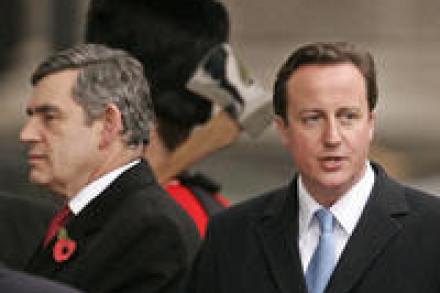Petty Brown tried to bar Cameron from Thatcher dinner at No 10
Matt’s column tomorrow in The Sunday Telegraph contains this scoop: “Later this month, Gordon Brown is hosting a dinner to mark the unveiling of a new portrait of Margaret Thatcher. Naturally, No 10 asked the Iron Lady for the names of guests she wanted to attend. No less naturally, it was suggested by her office that the present Conservative leader should be invited. But when Downing Street heard that David Cameron was on the list, there was, I gather, a preposterous attempt to strike him off.” This really is pathetic. Indeed, judging by the qualifications coming out of Downing Street tonight they realise just how small this makes the Prime










